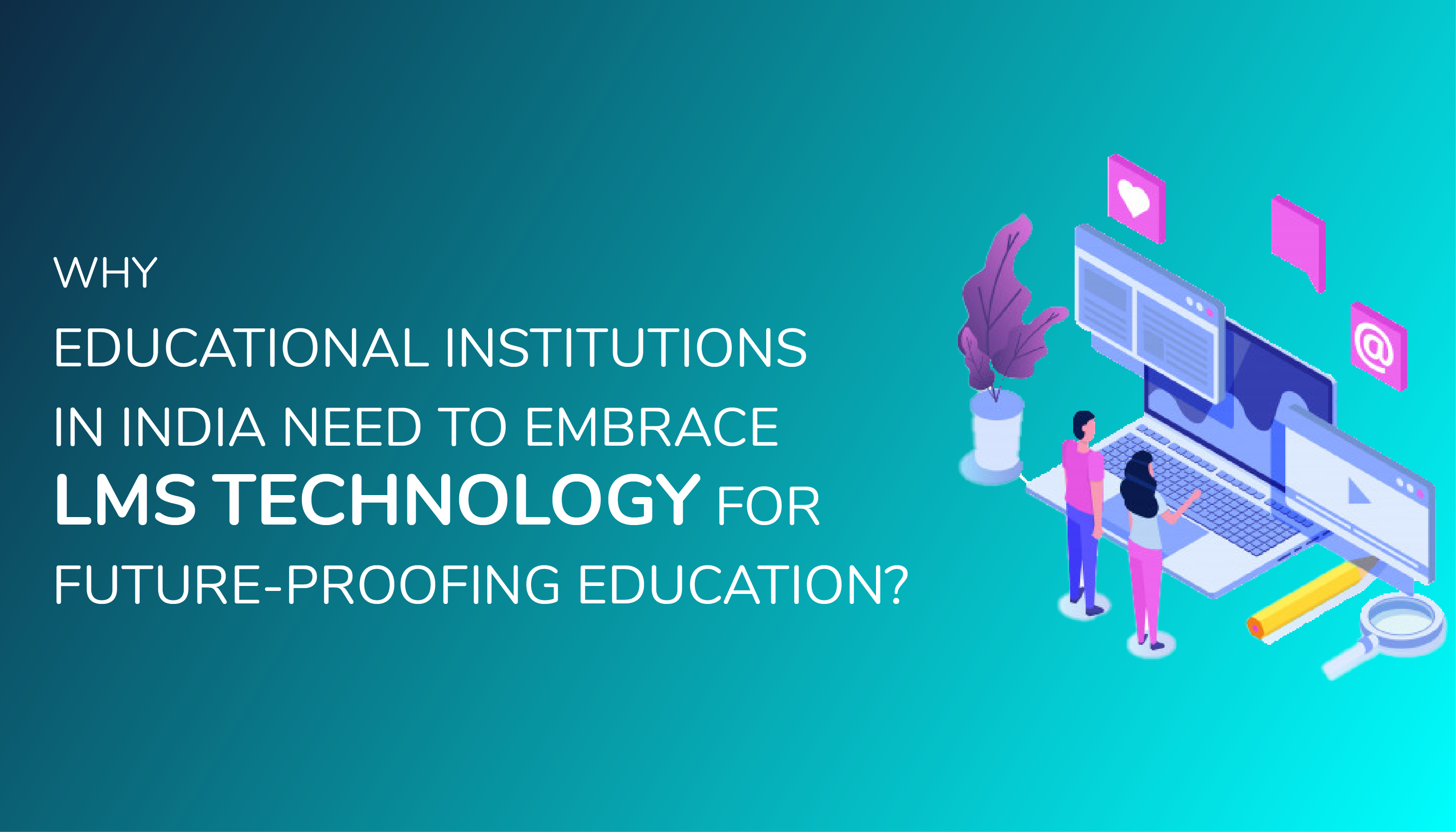Why should educational institutes in India embrace LMS Technology?
Why Educational Institutions in India Need to Embrace LMS Technology for Future-proofing Education?
The domain of E-learning has established itself as a game-changer, and many institutes have now placed it on a pedestal. E-learning is no more just a mere alternative but has become the necessity of the hour. This switch amidst these unforeseen circumstances has been a piece of cake only because of the saving graces of the Ed-Tech sector which offered plethora of digital solutions, the biggest being the LMS.
Let’s get into the details of LMS
The Learning Management System (LMS) is a one-stop all because it is absolute for the needs of all education institutes. No matter how small or big your school or university is, this software is quintessential as it aids in communication, integrated administration and additionally offers planning tools to enhance the students learning experience. Along with complimenting the student-teacher relationship, an LMS system also enables the guardian and the teacher to track the child’s growth trajectory. This not only helps in monitoring the areas need
special attention but presents a detailed graphical analysis about what special skills the student possesses that could be a valuable asset to his/her future.
Why should educational institutes in India embrace LMS Technology?
Maximum Learning Output
In FY19, India recorded over 37.4 million students in the higher education section and displayed a Gross Enrolment Ratio of 26.3%. Having such a dense student population makes it nearly impossible for the teachers to offer individual attention. Therefore, through the traditional learning method, a student fails to attain the maximum learning output, and on the broader spectrum, students lack necessary skills.

Maximum Retention of Content
Through the distinct LMS and ERP solutions offered, students are presented with highly engaging content which on the contrary, is not offered through the chalk-and-talk medium. Technological advancements such as AI and AR have upgraded student’s learning experience as well. Students are believed to have almost a 24-60 % increase in retention capacity when they learned through classes that were LMS integrated.

Surge in Engagement
Traditional classrooms are extremely dense, and addressing individual doubts might be tedious and due to which some students carry their doubts in their backpacks and under-perform. The LMS integrated platform provides educational institutes a room for individual growth. For instance, developing student-teacher forums to discuss the FAQs. Besides, LMS also permits you with various insight tools that help to aid educational facilities in accessing individual growth. This data can then be utilized by the admin to generate personalised modules. This approach incentivises students in participating, learning and thus leaves a very positive impact on the overall growth of the student.
Proves to be Cost Efficient
Traditional learning requires a lot of resources to function education smoothly. Having names like, textbooks, printed materials, also tonnes of paperwork to be maintained to secure all the details orderly. These products are susceptible to depreciation and are more or less likely to eat into the budgets of any institution. Implementing LMS technology in schools and universities is sustainable and also upgradeable.
Flexible Education
The most unique benefit of integrating LMS is that it can deliver education in any part of the world as long as it is clamped by the internet. Meaning, a student need not travel to a specific geographical location to access a course. This is extremely crucial to a country like India, where education is still a highly-priced dream. Adding to that, the student can choose the time and the duration required to complete a course. This contradicts the traditional methodology, where every student is diligently expected to learn and excel at a common pace. This herd mentality discourages the relatively weaker section of the class.
Personalised Education
Through LMS integrated classrooms, the emphasis has been on understanding subjects rather than merely mugging up and passing the exam. The Artificial Intelligence-based platform assesses the student’s performance and generates automated tasks. For example, Student A answers a question incorrectly; the AI understands the degree of understanding and offers an easier question. On the other hand, if the student is answering all the questions correctly, the AI gradually increases the level of difficulty. This approach offers the student a ladder to excel at his own pace.

Easy Access to Content
An LMS integrated institution offers an unparalleled advantage to users by allowing them to access all necessary course content, such as textbooks, references, movies in a click. The instructor can upload the needed content on the system and then can be easily accessed by the student from anywhere on any digital device. This allows educators to introduce students to additional reading material and not just restrict them to textbooks as the conventional schools follow.
Management and Security of Data
Once the scanned data is uploaded on the LMS system, it can be accessed by designating roles to prevent privacy breaches. Additionally, this reduces the burden on the administration of the institute.
India is heading towards digitalization, schools or teaching institutions are the base of forming our youth. And so with growth in other sectors education sector also needs to join hands when talking about going digital. As the future needs digitally prepared students.
